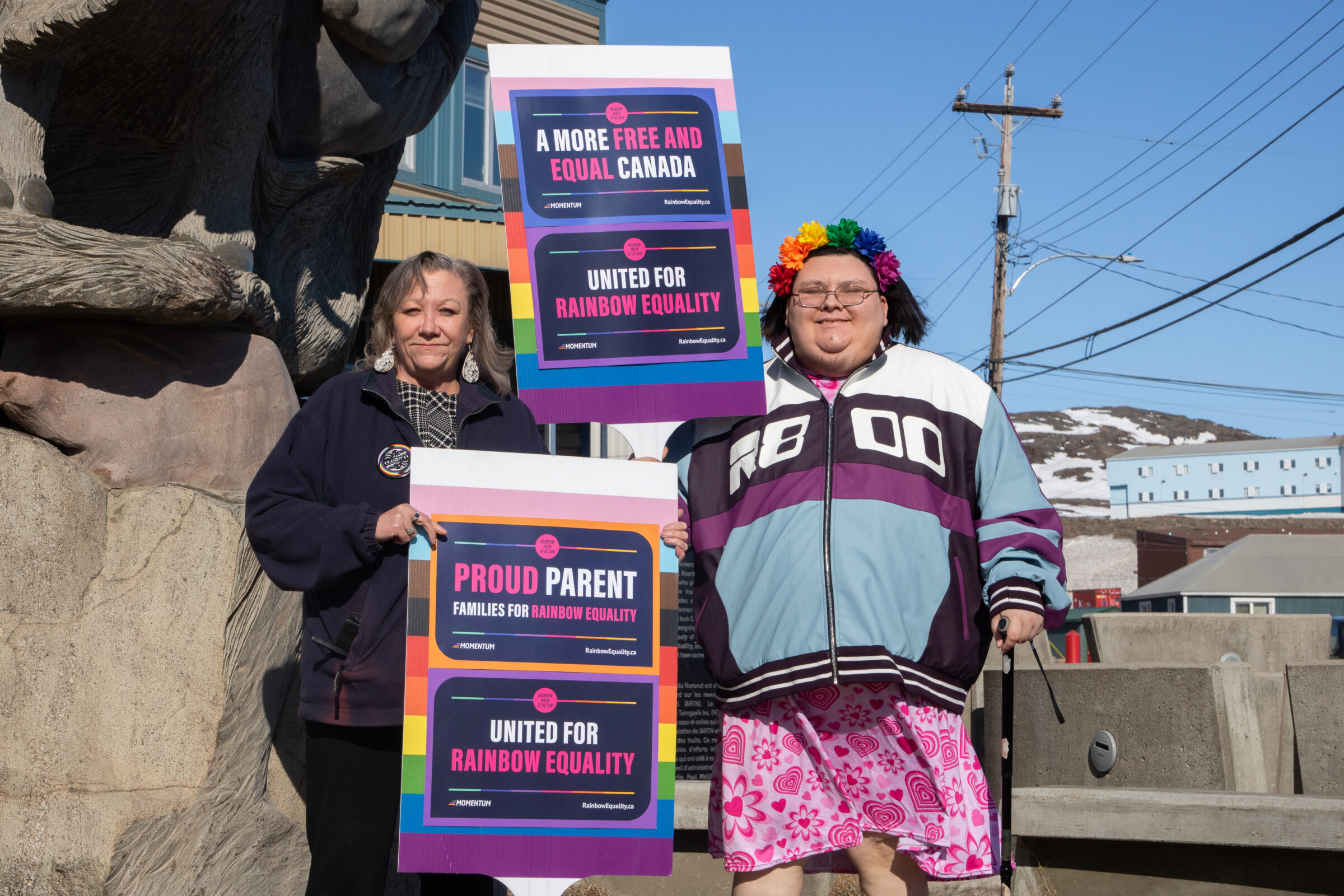Lifestyle
Nunavut Introduces Non-Binary Option on Birth Certificates

A significant change is underway in Nunavut, Canada, as the new Vital Statistics Act permits residents to select “non-binary” as a gender designation on birth certificates. This amendment, which passed on October 4, 2023, signifies a crucial step toward dignity, equality, and inclusion for individuals who do not identify strictly as male or female.
Jasmine Oldham, the administrator of the Amautiit Nunavut Inuit Women’s Association, expressed her support, stating, “This change affirms the rights of gender-diverse people and reflects Inuit values of respect and community.” Oldham emphasized the importance of making this recognition meaningful through accessibility, education, and safety for all individuals in Nunavut.
While the legislation has been approved, the practical implementation of the non-binary designation will take time. According to Charmaine Deogracias, communications manager with the Department of Health, the option will become publicly available in an estimated 12 to 18 months. Deogracias noted that multiple regulatory frameworks, both new and existing, must be finalized before the provision can be enacted.
Community Perspectives on Gender Identity
Nunavut now stands as the final jurisdiction in Canada to approve a non-binary option for birth certificates. Activist Delaney Drachenberg, who identifies as transgender and two-spirit, highlighted the significance of this decision. She noted that many non-binary individuals do not identify as strictly male or female and would prefer a designation that reflects their identity. Drachenberg also mentioned that Indigenous people identifying as two-spirit may not feel adequately represented by traditional gender categories.
Despite the positive reception, Drachenberg acknowledged that there may still be individuals who feel dissatisfied with the current options. “It’s definitely a huge step in the correct direction,” she remarked, while also stressing the need for ongoing dialogue to ensure all voices are included in discussions about gender identity.
This legislative change follows a broader trend in Canada towards recognizing gender diversity. The enactment of Bill C-16 in June 2017 established legal protections for “gender identity” and “gender expression” within the Canadian Human Rights Act. Additionally, the Civil Marriage Act of 2005 allowed same-sex couples to marry anywhere in Canada, marking significant milestones in the country’s journey toward equality.
Global Context of Gender Rights
Despite these advancements, challenges remain for LGBTQ+ individuals worldwide. Over 70 countries still criminalize consensual same-sex conduct, with a dozen imposing the death penalty for engaging in such acts. The ongoing struggle for recognition and rights for gender-diverse individuals highlights the importance of local changes, such as the recent amendment in Nunavut, in the global context of equality and human rights.
As Nunavut prepares to implement this new non-binary designation, the move signals a progressive shift towards inclusivity. The hope is that the recognition will foster a greater understanding and acceptance of diverse gender identities within the community, aligning with the values of respect and dignity that are central to Inuit culture.
-

 Politics4 weeks ago
Politics4 weeks agoSecwepemc First Nation Seeks Aboriginal Title Over Kamloops Area
-

 World5 months ago
World5 months agoScientists Unearth Ancient Antarctic Ice to Unlock Climate Secrets
-

 Entertainment5 months ago
Entertainment5 months agoTrump and McCormick to Announce $70 Billion Energy Investments
-

 Science5 months ago
Science5 months agoFour Astronauts Return to Earth After International Space Station Mission
-

 Lifestyle5 months ago
Lifestyle5 months agoTransLink Launches Food Truck Program to Boost Revenue in Vancouver
-

 Technology3 months ago
Technology3 months agoApple Notes Enhances Functionality with Markdown Support in macOS 26
-

 Lifestyle3 months ago
Lifestyle3 months agoManitoba’s Burger Champion Shines Again Amid Dining Innovations
-

 Top Stories2 months ago
Top Stories2 months agoUrgent Update: Fatal Crash on Highway 99 Claims Life of Pitt Meadows Man
-

 Politics4 months ago
Politics4 months agoUkrainian Tennis Star Elina Svitolina Faces Death Threats Online
-

 Sports5 months ago
Sports5 months agoSearch Underway for Missing Hunter Amid Hokkaido Bear Emergency
-

 Politics5 months ago
Politics5 months agoCarney Engages First Nations Leaders at Development Law Summit
-

 Technology5 months ago
Technology5 months agoFrosthaven Launches Early Access on July 31, 2025




















